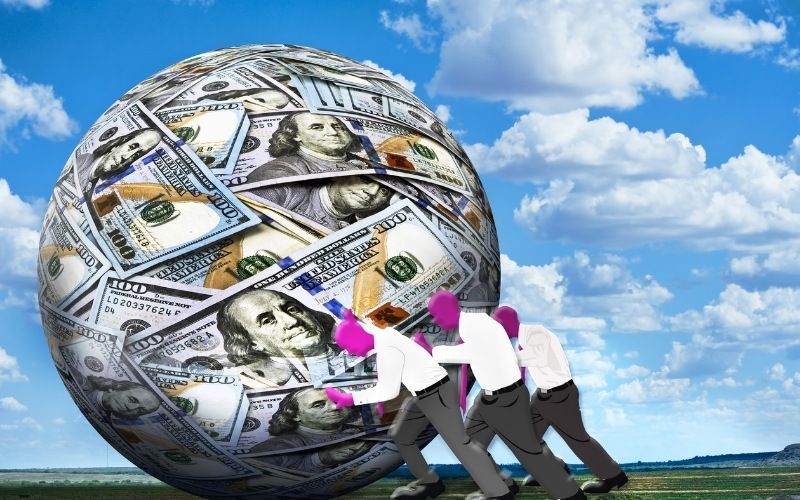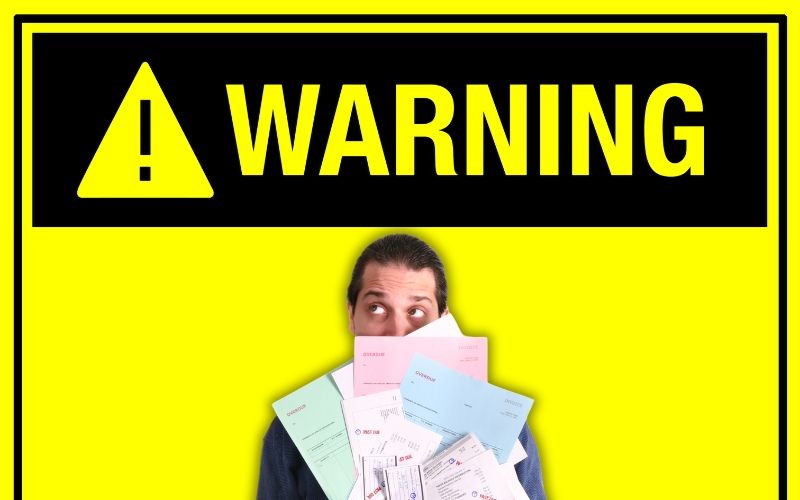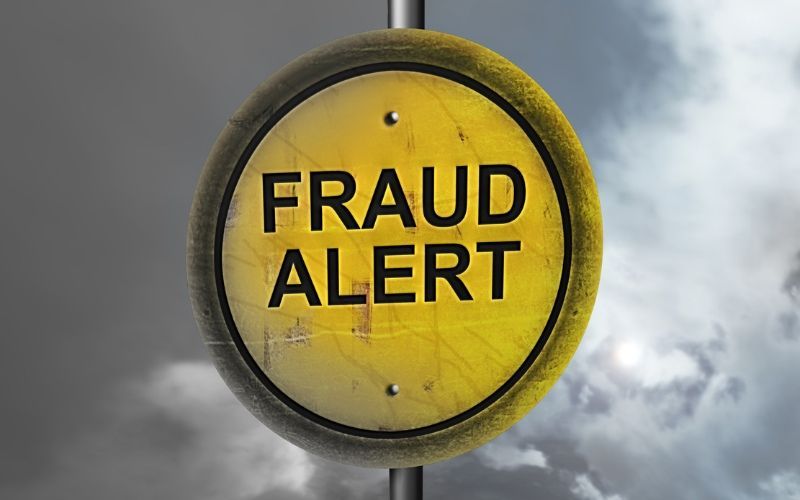Debt Consolidation Vs Debt Settlement
Last Updated: April 1, 2024
How To Choose The Right Debt Relief Option

Disclaimer: We are not qualified legal or tax professionals and are not giving advice. Always speak with a qualified professional before making any legal or financial decisions.
Managing overwhelming debt can feel like navigating a stormy sea. Two lifelines often considered by those seeking calm waters are debt consolidation and debt settlement.
While both strategies aim to ease the burden of debt, they differ significantly in approach, impact on your financial health, and long-term consequences. In this post, we'll dive into the nuances of debt consolidation versus debt settlement, helping you understand which option might be the beacon of hope you need.
Whether you're trying to lower your interest rates or reduce the total debt owed, understanding these paths is crucial in making an informed decision towards financial stability.
Ready for immediate debt help? Speak to a debt specialist today!
What is Debt Consolidation?
Debt consolidation takes all your debts and rolls them into one. You then take out a loan and pay off the debts. You then pay off that loan through monthly payments. To get a loan, you’ll probably have to have some sort of collateral. The goal is to get a reduced interest rate and lower monthly payments.
Since most debt consolidation plans involve loans, you may have additional fees like origination fees or closing costs. Those fees can add quite a bit to your existing debt.
Contact Pacific Debt today for your FREE consultation and Savings Estimate
Debt Consolidation Pros
- Reduce the number of bills
- Lessens chances of falling behind on bills
- May be able to get lower monthly payments and interest rates
Debt Consolidation Cons
- No control of spending habits – if you don’t reduce spending you will never eliminate debt
- Debt is not forgiven or even reduced
- Can take 3–5 years in a debt consolidation program to eliminate debt
Types of Debt Consolidation
There are several types of debt consolidation. These include a debt management plan (DMP), balance transfer on credit cards, personal loans, or home equity line of credit (HELOC).
A debt management program includes credit counseling and education programs. They can take a long time – up to 5 years – to complete. You will learn the roots of your financial problems and how to manage them.
Balance transfers on credit cards allow you to transfer your existing balances to a lower-interest card. This sounds great except that 0% balance cards are hard to get. If your credit score isn’t over 700, you may not be approved. In addition, balance transfers may come with a transfer fee of 2-3% on the balance and an expiration date of 12 to 18 months on the lower rate. Interest rates can then increase to more than your initial card.
Personal loans can be hard to get if you have a high debt-to-income ratio. You may end up with an origination fee, a prepayment penalty, and may need to have collateral (your car, home, etc.).
HELOCs have low interest rates but your home is the collateral. If you don’t make the payments, you could lose your house. Since it is a loan, you may have to pay application fees and closing costs as well.
Does Debt Consolidation Hurt Your Credit?
Debt consolidation can hurt your credit score. Taking out a loan requires a “hard pull” on your credit report. This may lower your credit score for a bit. It may lower your credit utilization ratio if you open a new credit card and transfer all your balances to it.
What Is Debt Settlement?
In debt settlement, you negotiate with your creditor to lower the amount you owe. Companies like Pacific Debt Relief that specialize in negotiating with creditors and have an excellent track record in debt negotiation services. One thing to consider with debt settlement, you may need to stop paying your bills to make creditors more willing to negotiate. This action can come with late fees and creditor phone calls.
Debt Settlement Pros
- May be able to pay less than you owe
- Last resort before bankruptcy
- One low monthly program payout
- Faster than Debt Management
- No credit requirements or collateral
Debt Settlement Cons
- Annoying phone calls from creditors
- Short-term impact on credit score and credit report for up to 7 years
- Possible tax consequences
- Risk of creditor lawsuit
Does Debt Settlement Hurt Your Credit?
Unfortunately, debt settlement may come with some credit score and credit report damage. Your late payment history may stay on your credit report for up to seven years. You should consider debt settlement for debts that are very delinquent or already in collections or if you are struggling to even pay the minimum. That way the damage is already done to your credit score.
What’s the Difference Between Debt Consolidation and Debt Settlement?
The quick answer is that in debt consolidation, you take out a loan to pay off all other bills, and then pay off the loan. In debt settlement, you negotiate with creditors to lower what you owe. When comparing debt consolidation vs debt settlement, take into consideration the effects on your credit score, the fees charged in each case, how long the program will last, and how delinquent your debt.
Bankruptcy
Bankruptcy is a legal action to have your debt erased. Bankruptcy is considered a last resort option. It may stay on your credit report for up to ten years. It is also legally complex and expensive. In debt consolidation vs bankruptcy vs debt settlement, always try debt consolidation or debt settlement first. If you are contemplating this option, speak to a legal bankruptcy specialist for more information.
Comparing Debt Relief Options
Debt consolidation, debt settlement, and bankruptcy all provide debt relief but have key differences. See this comparison of the pros, cons, and key factors of each option to understand which may be best for your unique situation.
| Debt Consolidation | Debt Settlement | Bankruptcy | |
|---|---|---|---|
| Impact on Credit | Typically improves credit if payments are made on time | Can damage credit due to delinquencies | Negative mark for up to 10 years |
| Cost | Interest paid on consolidation loan; may have origination fees | Fees range 15-25% of enrolled debt | Several thousand dollars in legal and court fees |
| Debt Resolution | Debts not reduced, but consolidated into one payment | Debt reduced by negotiated settlement amount | Much or all debt eliminated |
| Time to Complete | Per loan repayment terms, typically 2-5 years | Around 2-4 years to complete negotiations | Bankruptcy filing leads to immediate injunction; debt discharge process typically less than 6 months |
What Makes a Reputable Debt Settlement Company
If hiring a company to negotiate settlements, make sure to vet them thoroughly first. Watch our customer video testimonials to see what people are saying about our debt relief program.
Warning signs of untrustworthy companies include:
- High, vague fees
- Refusing to provide a detailed contract
- Aggressive sales tactics
Look for these positive signs of reputable debt settlement firms:
- Years in business with many positive reviews
- Free consultation and no upfront fees
- Accredited with industry organizations
FAQs
-
How will debt settlement affect my credit score?
Your credit score may drop significantly due to missed payments and delinquency reporting while you are settling debts. Late payments may stay on your report for up to 7 years.
-
Do I need to have good credit to qualify for debt settlement?
No, you do not need good credit for debt settlement. It is often best for those with poor credit.
-
What debts can you settle?
We can settle credit cards, medical bills, personal loans, and other unsecured debts. Settling secured debt like auto loans or mortgages can risk losing collateral.
-
Can debt settlement companies get 50% or more off my debts?
Yes - through years of experience we've refined negotiation tactics that often secure 50% or more savings for clients. We've settled over $300 million in debt at an average 50% savings.
-
When will creditors stop contacting me?
Once you enroll accounts with us, we send letters informing creditors. Some may still contact until the negotiation finishes but calls usually decrease over time after starting the program.
-
How long will settled debt remain on my credit report?
The settled status may remain for 7 years from the date of settlement. But this is still better than unpaid charge-offs.
Conclusion
Dealing with overwhelming debt leaves most feeling hopeless and frustrated. Yet solutions do exist - from consolidation to settlement to bankruptcy, relief is possible. There is always a light at the end of the tunnel.
When weighing which path is best, consider your unique financial circumstances and goals carefully before moving forward. Be wary of simplistic promises or high-pressure sales tactics; research firms thoroughly to verify their reputation and claims.
The debt specialists at Pacific Debt Relief are here to help with a free, no-obligation consultation. We'll review your debt, income, expenses, credit score, past efforts - everything to provide clear advice if consolidation, settlement, or another debt relief option is your most strategic choice. Our goal is to create an informed, empowered client, not a quick sale.
About Pacific Debt Relief
Unlike credit counseling agencies or debt consolidation companies, Pacific Debt’s main objective is to eliminate your debt. If you successfully follow our program, you may be debt-free in 2 to 4 years. To be eligible for the Pacific Debt settlement program, you must have more than $10,000 in unsecured debt
We rate very highly in Top Consumer Reviews, Top Ten Reviews, Consumers Advocate, Consumer Affairs, Trust Pilot, and US News and World Report. For more information, contact one of our debt specialists today. The initial consultation is free and our debt specialists will explain to you all your debt relief options.
Pacific Debt has helped thousands of people reduce their debt. Since 2002, we’ve settled over $300 million in debt for our clients. Contact us today to see how we can help.
*Disclaimer: Pacific Debt Relief explicitly states that it is not a credit repair organization, and its program does not aim to improve individuals' credit scores. The information provided here is intended solely for educational purposes, aiding consumers in making informed decisions regarding credit and debt matters. The content does not constitute legal or financial advice. Pacific Debt Relief strongly advises individuals to seek the counsel of qualified professionals before undertaking any legal or financial actions.
Are you ready for debt relief help now?
Get Free Consultation- Accredited by Better Business Bureau with BBB A+ rating(4.93 rating and 1678 reviews)
- US News and World Reports and Bankrate ranked Pacific Debt Relief as one of “The Best Debt Relief Companies of 2024”
- 6.9 star rating by BestCompany.com (over 2379 client reviews)
- 4.8 star rating by TrustPilot based (over 1613 verified consumer reviews)
- ConsumerAffairs.com Accredited (over 544 verified reviews with an average rating of 5 stars)
- A Top 10 Rated Company by TopTenReviews.com , ConsumersAdvocate.com and Top10debtconsolidation.com
- 4.6 star rating by Google (229 client reviews)
- 100% rating by SuperMoney (9 client reviews)

Pacific Debt Relief
750 B Street Suite 1700
San Diego, CA 92101
Hours of Operation
Mon-Thurs: 6am - 7pm PST
Friday: 6am - 4:30pm PST
Saturday: 7:30am - 4:30pm PST
Clients
Phone: (877) 722-3328
Fax: (619) 238-6709
Email: cs@pacificdebt.com
Non-Clients
Phone: (833) 865-2028
Fax: (619) 238-6709
Email: inquiries@pacificdebt.com
"To eliminate debt one household at a time, while placing people first." - Pacific Debt
© 2024 Pacific Debt Inc. dba Pacific Debt Relief, all rights reserved.
California Privacy Policy |  Do Not Sell My Personal Information
Do Not Sell My Personal Information
GLBA Privacy Notice | CDRI Accredited Member
*We do not discriminate on the basis of race, color, religion, sex, marital status, national origin or ancestry.
*Please note that all calls with the company may be recorded or monitored for quality assurance and training purposes.
*Your visit to our website may be monitored and recorded from essential 3rd party scripts.
*Clients who make all their monthly program deposits pay approximately 50% of their enrolled balance before fees, or 65% to 85% including fees, over 24 to 48 months (some programs lengths can go higher). Not all clients are able to complete our program for various reasons, including their ability to save sufficient funds. Our estimates are based on prior results, which will vary depending on your specific circumstances. We do not guarantee that your debts will be resolved for a specific amount or percentage or within a specific period of time. We do not assume your debts, make monthly payments to creditors or provide tax, bankruptcy, accounting or legal advice or credit repair services. Pacific Debt is not a credit repair firm nor do we offer credit repair services. Our service is not available in all states and our fees may vary from state to state. Please contact a tax professional to discuss potential tax consequences of less than full balance debt resolution. Read and understand all program materials prior to enrollment. The use of debt settlement services will likely adversely affect your creditworthiness, may result in you being subject to collections or being sued by creditors or collectors and may increase the outstanding balances of your enrolled accounts due to the accrual of fees and interest. However, negotiated settlements we obtain on your behalf resolve the entire account, including all accrued fees and interest. C.P.D. Reg. No. T.S. 12-03825.









